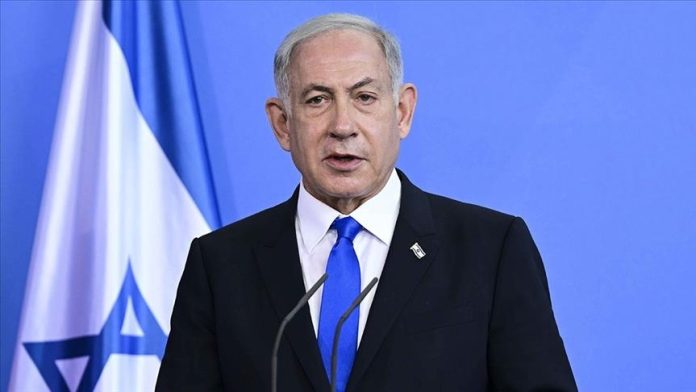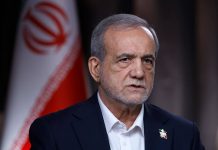Israeli Prime Minister Benjamin Netanyahu has announced that Gaza’s civilian population will be relocated to the southern part of the enclave, following his security cabinet’s unanimous approval of a broader military campaign aimed at Hamas, described by one minister as a plan to “conquer” Gaza.
The decision comes alongside the mobilization of tens of thousands of Israeli reservists, signaling a major escalation in the conflict. “There will be no in-and-out. We’re not going to enter and then withdraw,” Netanyahu declared Monday in a video posted to X. “The plan is to call up reserves, hold territory, and continue forward.”
He said relocating civilians was intended as a protective measure amid the intensified military effort, dubbed Operation Gideon’s Chariots, which aims to dismantle Hamas and secure the release of hostages. A senior Israeli official stated the operation could begin immediately after U.S. President Donald Trump’s upcoming visit to the Middle East, which Israel views as a final window for a potential hostage agreement.
“If there’s no deal, the operation will proceed at full strength until every objective is achieved,” the official said.
Under the plan, civilians in Gaza will be moved southward, and any humanitarian blockade relief will occur only after that displacement. Israeli forces are expected to remain in all captured areas, with a permanent security buffer zone established along Gaza’s perimeter.
“We are on the verge of a significant entry into Gaza,” Netanyahu said, citing recommendations from military leadership.
Brig. Gen. Effie Defrin, a spokesperson for the Israeli military, emphasized that the top priority is securing the release of hostages—placing that above the defeat of Hamas. “The primary goal is to bring the hostages home,” he said.
His remarks drew criticism from National Security Minister Itamar Ben Gvir, who accused Defrin of misunderstanding the military’s role. Hostage families also voiced concern, warning that a broader war could endanger their loved ones and urging the government to prioritize negotiations over escalation.
Asked about Washington’s stance, U.S. National Security Council spokesperson Brian Hughes said President Trump “has made clear the consequences Hamas will face if it continues to hold hostages, including Americans,” and placed full responsibility for the renewed conflict on Hamas.
Finance Minister Bezalel Smotrich raised further controversy by suggesting that Israel may annex Gaza following a military takeover. “We are finally going to conquer the Gaza Strip,” he said, asserting that once ground operations begin, “there will be no withdrawal—not even for hostages.” Though he stopped short of formally calling for annexation, Smotrich insisted that any seized territory should remain under Israeli control.
Since mid-March, Israeli airstrikes have reportedly killed over 2,400 Palestinians in Gaza, according to local reports. The Gaza Ministry of Health claims more than 52,000 lives have been lost since the war began.
The Israeli government is reportedly pacing the military buildup to allow for a potential ceasefire or hostage resolution before Trump arrives in the region, where he is expected to visit Saudi Arabia, the UAE, and Qatar—though no stop in Israel is currently planned.
The United Nations has voiced deep concern over Israel’s military escalation. UN Deputy Spokesperson Farhan Haq said Secretary-General António Guterres is “deeply alarmed” by the potential for mass civilian casualties.
Meanwhile, Israel’s blockade of humanitarian aid to Gaza has entered its ninth week. Although the cabinet has approved a new aid delivery framework, it has yet to be implemented.
Internal debate remains fierce, with far-right ministers opposing any relief, while IDF Chief of Staff Lt. Gen. Eyal Zamir emphasized Israel’s legal responsibility under international law to facilitate humanitarian access.












